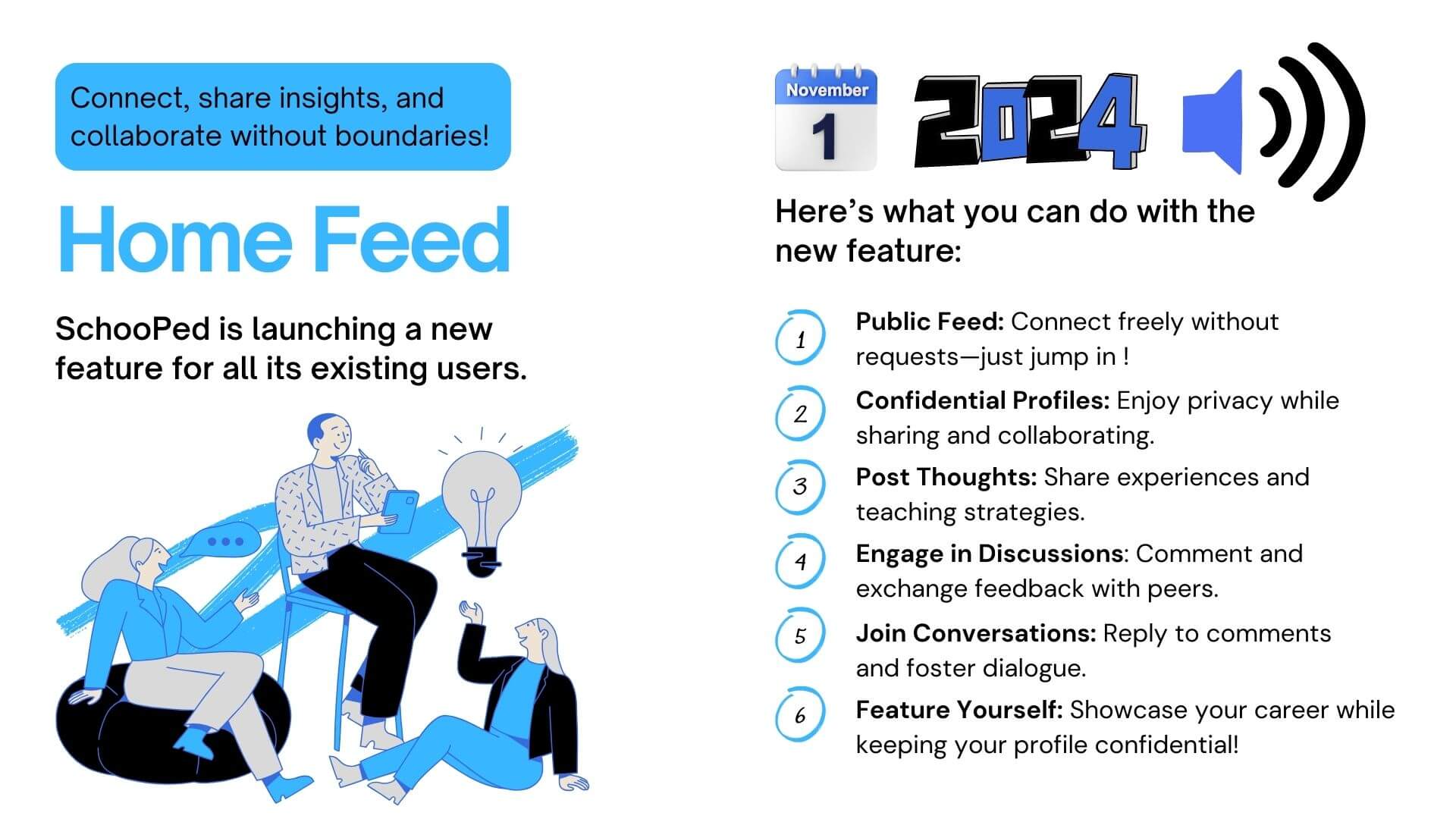Failure is often perceived negatively, but in the realm of education, it can be a powerful catalyst for growth, learning, and career advancement. This blog explores the constructive ways educators can leverage failure to enhance their professional development and make a positive impact on their teaching practices and student outcomes.
Understanding Failure in Education
Failure in education can manifest in various forms—lesson plans that don't engage students effectively, challenges in classroom management, or initiatives that don't yield expected results. Instead of viewing these experiences as setbacks, educators can approach them as opportunities for reflection, learning, and improvement.
Embracing Failure as a Learning Opportunity
1. Reflecting on Mistakes
- Analyzing Classroom Experiences: Take time to reflect on lessons that didn't go as planned. What factors contributed to the outcome? How did student engagement vary?
- Seeking Feedback: Collaborate with colleagues, seek input from mentors, or even ask students for constructive feedback. Different perspectives can provide valuable insights into what went wrong and how to improve.
2. Learning from Setbacks
- Adapting Teaching Strategies: Use failure as a springboard to innovate and refine teaching methods. Experiment with new approaches based on lessons learned from past failures.
- Professional Development: Identify areas for growth and seek professional development opportunities—such as workshops, conferences, or online courses—to enhance skills and knowledge.
3. Building Resilience
- Overcoming Challenges: Develop resilience by confronting setbacks head-on. Understand that challenges are part of the learning process and use them as motivation to persevere and improve.
- Role Modeling Resilience: Demonstrate resilience to students, showing them how to navigate failures, learn from mistakes, and grow academically and personally.
Leveraging Failure for Career Advancement
1. Enhancing Professional Skills
- Skill Development: Use failure as motivation to acquire new skills relevant to the education sector—such as technology integration, differentiated instruction, assessment strategies, or classroom management techniques.
- Certifications and Qualifications: Pursue certifications or advanced degrees that align with career goals and address areas where improvement is needed.
2. Seeking Leadership Opportunities
- Taking on Challenges: Volunteer for leadership roles or initiatives within your school or district that align with your interests and strengths. Leadership experiences often involve navigating challenges and learning from failures to drive positive change.
- Networking and Mentorship: Build relationships with educational leaders, participate in professional networks, and seek mentorship from experienced educators who can provide guidance and support in navigating career advancement opportunities.
3. Contributing to Educational Research and Innovation
- Action Research: Conduct action research projects within your classroom or school community to explore innovative teaching practices, interventions, or curriculum enhancements. Embrace failures as opportunities to refine research methodologies and contribute valuable insights to the field of education.
- Publishing and Presenting: Share your research findings, successful strategies, or lessons learned from failures through publications, presentations at conferences, or workshops. Contributing to educational discourse demonstrates expertise and dedication to continuous improvement.
Cultivating a Growth Mindset
1. Fostering a Positive Learning Environment
- Promoting Growth Mindset: Create a classroom culture that celebrates effort, persistence, and resilience. Encourage students to embrace challenges, learn from mistakes, and view failures as opportunities for growth.
- Feedback and Support: Provide constructive feedback to students, helping them develop self-awareness, goal-setting skills, and strategies for overcoming academic setbacks.
2. Personal Growth as an Educator
- Committing to Lifelong Learning: Embrace a mindset of continuous improvement and lifelong learning. Stay informed about current educational trends, research, and best practices to enhance teaching effectiveness and student engagement.
- Self-Reflection: Engage in regular self-reflection to assess teaching practices, classroom dynamics, and student outcomes. Identify areas for growth and development based on insights gained from successes and failures alike.
Conclusion
In conclusion, failure can be a transformative force in an educator's career journey when approached with resilience, reflection, and a growth mindset. By embracing failures as opportunities for learning and improvement, educators can enhance their teaching practices, contribute to student success, and advance their careers in education.
Whether teaching in traditional classrooms or exploring opportunities in online education or international teaching markets like Thailand, China, Vietnam, and India, educators who use failure constructively are better equipped to navigate challenges, innovate in their practice, and make meaningful contributions to the field of education. Embrace each setback as a chance to learn, grow, and inspire students to do the same. Start leveraging failure today to advance your career and foster positive educational outcomes for all learners.
Join SchooPed today and embark on a journey of professional growth, cultural immersion, and meaningful impact as an educator in India, China, Thailand, or Vietnam. Your dream teaching job awaits—apply now and seize the opportunity to make a lasting difference in the lives of students around the world.
Visit SchooPed to explore teaching opportunities in India, China, Thailand, and Vietnam, and take the first step toward a fulfilling career in education. Together, let's shape the future of learning and empower students to achieve their fullest potential, one classroom at a time.
Tags
- teach in Thailand
- career growth
- Teach in Vietnam
- teach in china
- Teach in India

 July 15, 2024 | Posted by Team SchooPed
July 15, 2024 | Posted by Team SchooPed_(1).png)